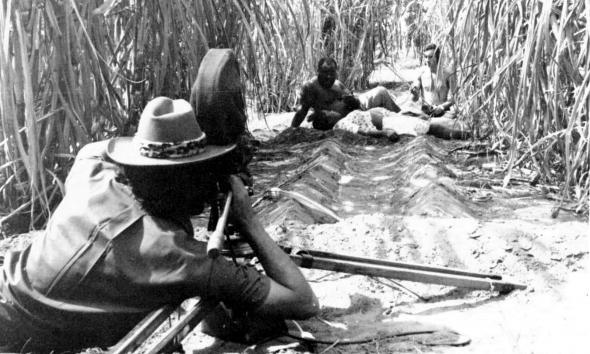About the film sessions Re-imagining the (post)colonial archives
The film series Re-imagining the (post)colonial archives. Reflections/refractions was conceived to enhance critical awareness and debate about the ethics and practices of the archive-image in relation to the (post)colonial situation. What I consider as archive-image are just as much films that work with montage of archival images used as memoir, as pieces of work that (re)envision and suggest redefinitions of the archive creating new images, like Gianikian/Ricci-Lucchi do with their “analytical camera”. Incorporating the participants’ film suggestions, the series consists of closed sessions for researchers, archivists, curators, activists and artists attending the workshop and three sessions open to the public.
During the workshop, the program features films from archives that were created in colonial settings as well as militant pieces of work and auteur films, creating a setting of shot-countershot. By showing examples of approaches to the archive by contemporary artists, creators of new images, it enhances a glimpse of the off-screen that cinema didn’t project.
 Deixem-me ao menos subir às palmeiras, Lopes Barbosa, 1972
Deixem-me ao menos subir às palmeiras, Lopes Barbosa, 1972
The public sessions, in Culturgest, conclude each day of the workshop, opening up to a widened debate. In these sessions, the resignification enhanced by the “analytic camera” is the starting point for a discussion on the possibilities of reusing the (post-)colonial images to unveil contemporary approaches and films that were “erased” by politics of the memory and to think about a genealogy of the archive-image, perceiving them also as praxis as they claim to be “screenings of a fight that is not over yet”.
This dispositive provides us with images that trigger a dialogue through which we can think and experiment practices that make us question these images and potentiate new artistic and archival perspectives, as well as new horizons for programming, investigation and citizenship. What we are looking for is a critical conscience for representations that are calcified or absent from the archives, building a debate about the modes of reimagination and ethical approaches – not only to those images that become archive-image but also to the image archives in their materiality.